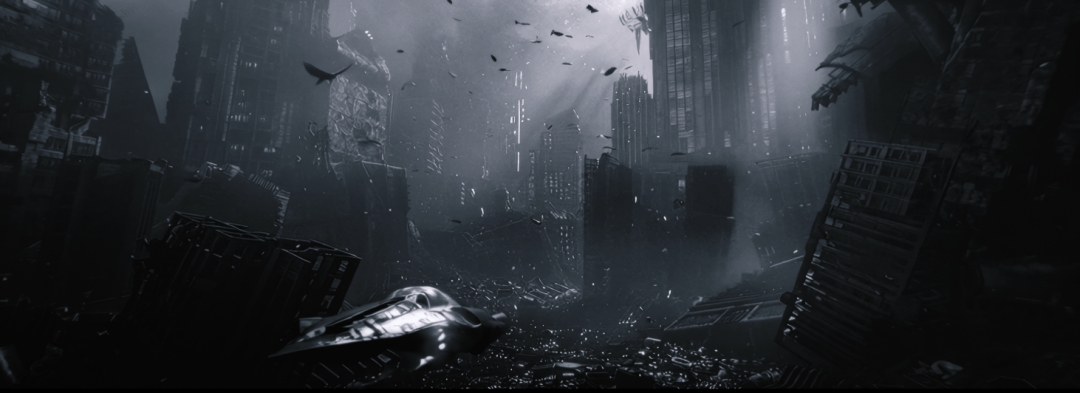On December 6th, nine groundbreaking AI-generated short films were unveiled in China. This exciting project brought together some of the country’s most celebrated filmmakers, including Jia Zhangke, winner of the Lifetime Achievement Award at Cannes, and Timmy Yip, who won an Academy Award for his work on Crouching Tiger, Hidden Dragon.
These nine experimental short films, which explore genres like fantasy, folklore, family drama, and animation, were all created using Kling AI’s powerful video generation tool. Ranging from three to six minutes long, the films showcase a fusion of AI technology and traditional filmmaking techniques, marking a historic first in global cinema.
“AI gives us boundless imagination… you can go anywhere you want,” said Yip, who won the 20th Best Art Direction and Best Costume Design Awards for his work on Crouching Tiger, Hidden Dragon in 2001.
In Yip’s AI short film The Courier, he depicts a novel space world where an alien courier, Lili, embarks on a quest to awaken the Earth in search of the Silver Dragon. The mottled surface of the Earth, the dust stirred up by the rapid landing of the spacecraft, every frame of the realistic imagery immerses viewers in the experience. As Lili’s adventure unfolds, it gradually reveals the Earth’s decay and potential for revival, reflecting profound contemplation on life existence, and the future.

Yip was particularly amazed by the AI’s ability to create an alien character with human-like traits. “I found it quite fun,” he said, “the alien looks at you, blinks, and feels somewhat familiar—almost like it has a human touch, which was surprising.”
Shi Shuo, an AIGC application engineer involved in The Courier, explained that he extensively used functions like frame control in his creation. Shi believes that “A truly great AI tool should provide creative inspiration while also allowing for deep control over the process. Kling AI has exceeded expectations in this regard.”
In addition, Kling AI is equally adept at tension-filled picture expression through the form of animation. Among the nine AI-produced movies, the well-known Chinese animation director Wang Maomao’s Till Next Time, Bunny tells the story of a boy’s panic and helplessness due to his failing examination paper in the form of animation, which is eventually released because of his family’s love and care.
The giant monster and the endless ladder in the film are all visualizations of the boy’s inner pressure. In Wang ‘s opinion, “Animation is the most suitable form of creation to utilize imagination, and the addition of AI brings more ways of expression.”
Since Sora’s stunning debut earlier this year, demonstrating cutting-edge AI generated video technology, large video models have sprung up globally. Despite officially launching in June, Kling AI has garnered significant attention for its rapid growth and innovation, quickly stood out as a leader in the field of global video large models.
According to data from the authoritative website analysis tool Similarweb, among many AI video products of the same period, Kling AI’s traffic growth has been extremely rapid. As of September 24th, Kling AI’s total visits had climbed to 33.7 million, surpassing the already released products Runway (31.34 million) and Pika (7.52 million).
Zhang Di, Vice President of Kuaishou Technology and head of the large model team, introduced that since its release this year, Kling AI has maintained a high-speed iteration, achieving significant progress in model quality, aesthetic performance, control capabilities, and other aspects. It now has more than 5 million users, generating over 51 million videos and over 150 million images.
“The nine AIGC short films not only highlight Kling AI’s extraordinary ability to simulate the physical world and create unique visual effects,” Zhang Di explained, “but they also embody the directors’ open-minded approach to new technologies and their willingness to embrace innovative creative methods.”
Jia Zhangke, a giant in Chinese cinema, also embraced AI in his short film Wheat Harvest. Known for his thought-provoking storytelling, Jia used Kling AI to experiment with new creative possibilities. He previously won the Best Screenplay Award at the 66th Cannes International Film Festival for his film A Touch of Sin. In 2015, he received the Lifetime Achievement Award at the Director’s Fortnight of the 68th Cannes International Film Festival.
Jia introduced that he has always been curious to the development of AI. In his work Wheat Harvest, he first tried and explored the possibilities of Kling AI in film creation. The entire AIGC movie short uses the traditional cinematic narrative approach as well as the split-screen method of a road movie to create more application scenarios through AI. In just six minutes, Kling AI can achieve multiple space transitions and the continuous presence of characters, “which is a great surprise.”
Nonetheless, Jia also frankly stated that he hopes to explore the possibilities of AI itself using Kling AI. “I may not shy away from the fact that Kling needs to be improved in its current development stage, or the challenges that AI technology as a whole faces. I think that only if we creators, working together with scientists and technologists, touch that boundary together, and we create more application scenarios, AI can develop more rapidly.”
Media Contact
Company Name: KLING AI
Contact Person: Jack Huang
Email: Send Email
State: Beijing
Country: China
Website: https://klingai.com/
